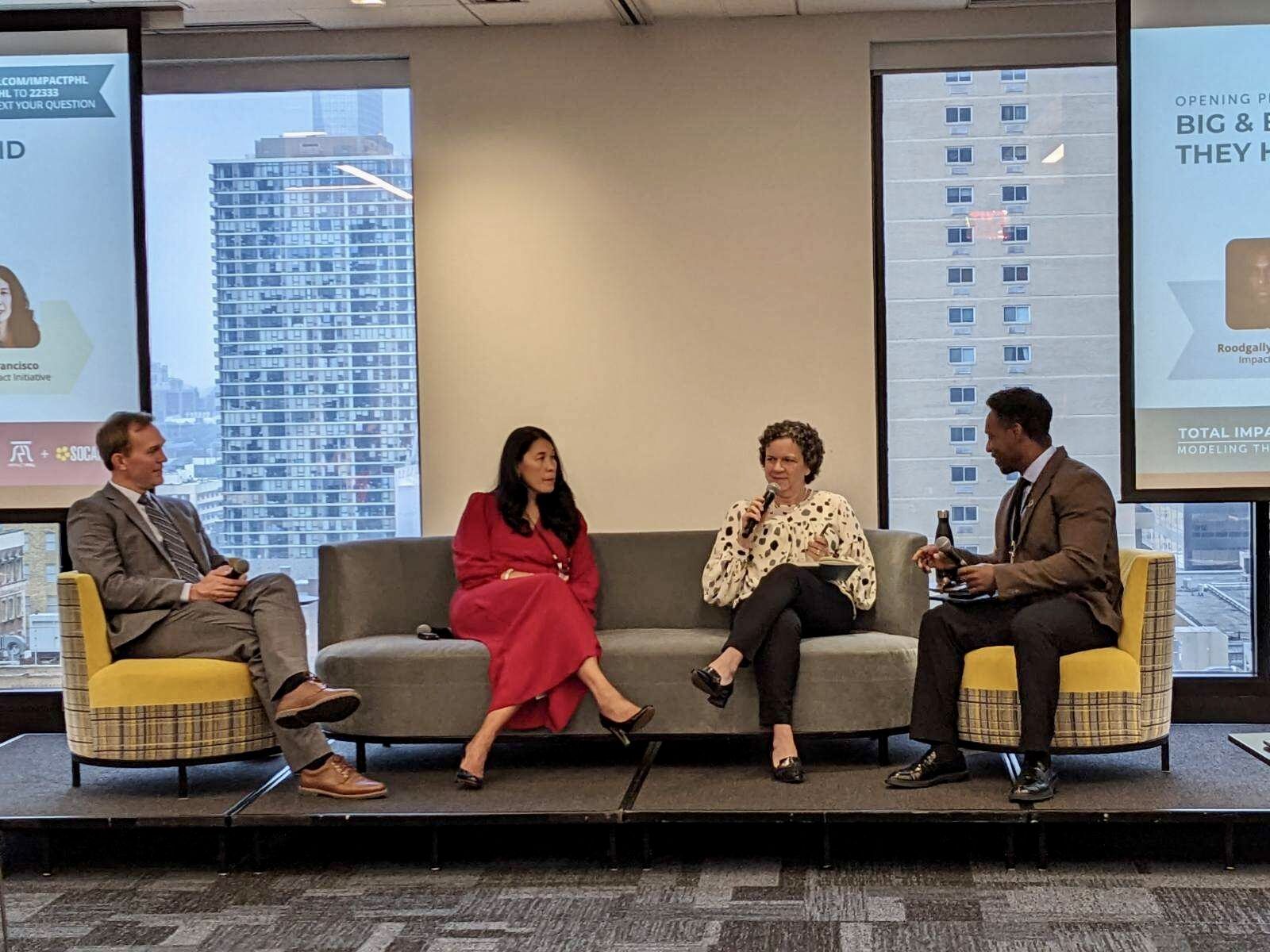Greetings, ImpactAlpha readers!
#Featured: ImpactAlpha Original
Expanding the pool of capital for investments in low-income communities. Not long ago, most investments in community development finance institutions came from banks that needed to satisfy legal requirements under the Community Reinvestment Act. This year, a raft of public bond market and other fixed-income investment options have let institutional and even retail investors put their money to work in affordable housing, small business and other community development projects in low-income communities. The latest is this week’s $100 million offering of ‘AA’-rated “Capital Impact Investment Notes” from Capital Impact Partners, a nonprofit loan fund, available to retail investors with as little as $1,000 to invest.
Capital Impact’s notes further expand the pool of capital available for low-income, community-development lending. Earlier this month, CNote, based in Oakland, Calif., extended its high-yield, low-risk savings product to retail investors; the deposits are pooled and invested in community-development finance institutions, or CDFIs. The Low-Income Investment Fund listed its new LIIF Impact Note on ImpactUs, an online platform for impact investments. Earlier this year, the Reinvestment Fund and the Local Initiatives Support Corp., both CDFIs, offered S&P-rated bonds in the public markets. The new offerings, says Paul Herman of HIP Investor, “help aggregate impact-oriented investors in a common channel to allocate more easily to impactful, for-profit investments in their communities or nationwide”.
Go deeper with “Community development lenders continue to expand investor offerings” by Oscar Perry Abello on ImpactAlpha.
Community development lenders attract new investors to low-income neighborhoods
#Dealflow: Follow the Money
George Soros’ $18 billion gift to Open Society Foundations could boost impact investments. The hedge-fund billionaire and a global advocate hastransferred $18 billion in assets to his long-time philanthropy. With the gift, to be distributed over several years, the foundation becomes the second largest U.S. philanthropy, behind the Bill & Melinda Gates Foundation. Open Society already spends close to $1 billion a year to promote democracy and human rights in more than 120 countries. Worth watching: The Soros Economic Development Fund, which has made more than $130 million in program-related investments into commercial enterprises that advance the foundation’s economic inclusion goals. Among its investments: the first fund of Leapfrog Investments, the frontier-market financial-services investor that has raised more than $1 billion across multiple funds; Aspada Investments, an Indian early-stage venture capital firm that focuses healthcare, education, agriculture and financial services; and Media Development Investment Fund, which invests in independent media in countries often hostile to a free press.
Bloom Impact gets boost from Engineers Without Borders. Bloom Impact, a Ghana-based fintech startup, provides an online and mobile platform to help micro- and small-business owners in Africa raise funds by enabling lenders to vet businesses in need of financing. Bloom estimates there is a $140 billion to $170 billion financing gap for Africa’s small business owners, many of whom operate in the informal economy and are unbanked. Engineers Without Borders Canada, which uses engineering skills to aid development, has invested in several other fintech startups as a way to make products and technologies more accessible to low-income populations. Its investment in Bloom, amount undisclosed, came via its venture seed fund, EWB Ventures; this is its ninth investment. In July, it backed mobile text-based early-education venture, M-Shule.
ESCALA Educación closes seed round. The Colombia-based startup partners with businesses and universities to help low- and middle-income workers build education savings plans. Employees have a portion of their paychecks automatically diverted into ESCALA’s plans, and employers pledge to match a share of the contributions. “In Colombia, nearly half of the students who start college drop out, and a majority of those students leave for financial reasons,” said Michael Schlein, president and CEO of Accion, whose Accion Venture Lab invested in ESCALA. Mountain Nazca Colombia, Invictum Capital, and several Colombian angel investors also joined the round. Other startups are experimenting with similar ways to make higher ed more accessible. U.S.-based Guild Education recently raised $21 million to help companies developtuition assistance programs for wage workers.
See all of ImpactAlpha’s recent #dealflow. Send deal tips and news to [email protected].
#Signals: Ahead of the Curve
Tech’s next stop: Middle America. San Francisco-based Salesforce.com is joining the effort to put America’s smaller cities on the map as entrepreneurial hubs. The company in 2013 acquired ExactTarget, an Indianapolis-based email-marketing company, and has committed to helping it grow locally. Salesforce’s Indianapolis office now has 1,500 workers — the company’ssecond largest base outside of its headquarters. It has been able to coax new (if reluctant) talent to the city from coastal startup capitals like San Francisco and Seattle. “Once they get here, they love it,” says Bob Stutz, Salesforce’s cloud marketing CEO. The company plans to add another 800 jobs by 2020. That’s just Salesforce’s direct impact. Its acquisition of ExactTarget freed up founders to launch new startups and incubators. “That re-investing of money and mentorship back into the community has had a big payoff: $7 billion worth of transactions for Indianapolis tech companies in the past 10 years,” reportsAxios. Salesforce isn’t alone in highlighting entrepreneurial opportunities in between the coasts. Steve Case’s “Rise of the Rest” tour is visiting cities across the Midwest and Lowell, Mass.-based Entrepreneurship for All is expanding to 50 small and mid-sized cities suffering economic decline.
Venture philanthropy solutions to Europe’s challenges. Europe is being tested by rising inequality, refugee integration, disappearing jobs and shrinking civic space. A new crop of social enterprises and social-purpose organizations are responding to the challenges. To create meaningful impact, these businesses need stable funding, capacity and partnerships. The European Venture Philanthropy Association, a collection of investors, grantmakers, banks and business schools, has tasked itself with boosting capital flows and building an ecosystem of support for social ventures. The EVPA is convening more than 500 leaders from more than 30 countries for its annual conferencein Oslo, Norway Nov. 9–10. ImpactAlpha is a proud sponsor. EVPA members and non-members can register here.
#2030: Long-Termism
Can a Long-Term Stock Exchange drive long-term impact? Short-termism in business and finance is blamed for everything from excessive CEO compensation to underinvestment in infrastructure to the Great Recession itself. BlackRock CEO Larry Fink last year took CEOs to task for excessive dividend payouts, an obsession with quarterly-earnings guidance and ignoring long-term risks and opportunities. “Over the long-term, environmental, social and governance, or ESG, issues — ranging from climate change to diversity to board effectiveness — have real and quantifiable financial impacts,” Fink wrote in his annual letter.
Next year, companies that want to take a long-term view may get some support, by listing on a new “Long-Term Stock Exchange.” Eric Ries, of Lean Startup fame, has been working on the idea for at least seven years, and now says he expects to register the Long-Term Stock Exchange with the SEC by the end of the year. He promises to “reinvent the public company experience with novel approaches to executive compensation, shareholder voting, disclosure practices, board and stakeholder policies, and community governance.”
In a conversation last year, Ries told ImpactAlpha that “long-term” could be a way to talk about social impact without scaring off investors. “If you talk about ‘social responsibility,’ people hear mandates and that’s a distraction from ‘performance.’” he said. “So we focus on whatever companies think will yield long-term results.” It so happens, he said, “that certain trends that fall under the heading of social impact, if people took them seriously, they would make more money.” Companies that make such investments for the long-term, however, are under pressure to cannibalize them and cut costs whenever the company has a bad quarter. By creating counter-incentives, “We want to liberate those decisionmakers who think they have a long-term thesis to act on them.”
Onward! Please send news and comments to [email protected].











